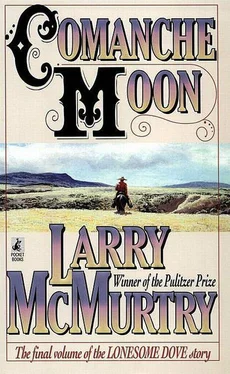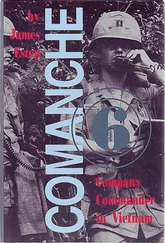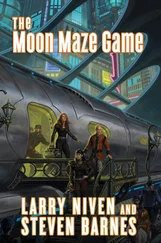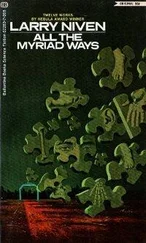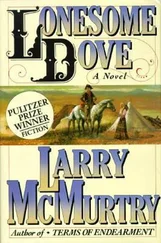"I can't speak for Captain McCrae but I have no wish to desert my duties," Call said.
"I have no quarrel with the Yankees, that I know of, and no desire to fight them." "Thank you, that's a big relief," the Governor said. "I recognize it's a poor time to ask, but what about you, Captain McCrae?" Augustus didn't answer--he felt resentful. From the moment, years before on the llano, when Inish Scull abruptly made him a captain, it seemed that, every minute, people had pressed him for decisions on a host of matters large and small. It might be trivial--someone might want to know which pack mules to pack--or it might be serious, like the question the Governor had just asked him. He was from Tennessee. If Tennessee were to join the war, he might want to fight with the Tennesseeans; not having heard from home much in recent years, he was not entirely sure which side Tennessee would line up with. Now the Governor was wanting him to stay in Texas, but he wasn't ready to agree. He had lost two wives in Texas--not to mention Clara, who, in a way, made three. Why would he want to stay in a place where his luck with wives was so poor? His luck with cards hadn't been a great deal better, he reflected.
"I assure you there'll be an improvement in the matter of salaries," the Governor said.
"I'll raise you even if I have to pay you out of my own pocket until this crisis passes." "Let it pass--there'll just be another one right behind it," Augustus said, irritably. "It's just been one crisis after another, the whole time I've been rangering." Then he stood up--fed up. He felt he had to get outside or else choke.
"I've got to get my wife decently buried, Governor," he said. "She won't keep, not with the weather this warm. I expect I'll stay with Woodrow and go on rangering, but I ain't sure. I just ain't sure, not right this minute. I agree with Woodrow--allyankees are still Americans, and I'm used to fighting Comanche Indians or else Mexicans." He paused a moment, remembering his family.
"I've got two brothers, back in Tennessee," he added. "If my brothers was to fight with the Yankees, I wouldn't want to be shooting at them, I know that much." Governor Clark sighed.
"Go home, Captain," he said. "Bury your wife. Then let me know what you decide." "All right, Governor," Augustus said.
"I wish there was a good sheriff here. He ought to arrest those fools who are shooting off their guns in the street."
Inish Scull--Hoppity Scull, as he was known in Boston, because he was still occasionally seized by involuntary fits of hopping; they might occur at a wedding or a dinner party or even while he was rowing, in which case he hopped into the chilly Charles--was walking across Harvard Yard, a copy of Newton's Opticks in his hand, when a student ran up to him with the news that war had been declared.
"Why the Southern rascals!" Scull exclaimed, after hearing of the provocation that had occurred.
His mind, though, was still on optics, where it had been much of the time since Ahumado had removed his eyelids. He had just spent three years making a close study of the eye, sight, light, and everything having to do with vision--Harvard had even been prompted to ask him to teach a course on optics, which is what he had been doing just before news of the Southern insurrection reached him. He was wearing his goggles, of course; even in the thinner light of Boston a chance ray of sunlight could cause him intense pain; the headaches, when they came, still blinded him for days. He was convinced, though, from his study of the musculature of the eye, that his experiment with the Swiss surgeon and the frog membrane need not have failed. He had been planning to go back to Switzerland, armed with new knowledge and also better membranes, to try again.
But the news that the spindly student had brought him, once it soaked in, drove optics, in all their rich complexity, out of Inish Scull's mind. The excitement in Cambridge was general; even the streets of Boston, usually silent as a cemetery, rang with talk. Scull rarely walked home, but today he did, growing more excited with every step. He still had his commission in the army of the United States; the thought of battle made a sojourn in Switzerland seem pallid. He longed to lead men again, to see the breaths of cavalry horses condense in white clouds on cold mornings, to ride and curse and shoot under the old flag, Bible and sword.
When he flung open the door of the great house on Beacon Hill, the house where he had been born and been raised, the sight that greeted him was one to arouse ardor, but not of a military kind.
Inez Scull, entirely bored with Boston, was striding up and down the long, gloomy entrance hall, naked from the waist down, slashing at the Scull family portraits with a quirt.
Lately she had begun to exhibit herself freely, mostly to shock the servants, good proper Boston servants all, very unused to having their mistress exhibit her parts in the drawing room or wherever she happened to be, and at all hours of the day, as well.
Hearing the door open, Entwistle, the butler, appeared--old Ben Mickelson had been sent to the house in Maine, to dodder and tipple through the summer. Without giving Madame Scull so much as a glance, Entwistle took the master's coat.
"So there, Inez, I hope you're satisfied," Inish said.
"I'm very far from satisfied, the stable boy was hasty," Inez said, turning her red face toward him as she continued to quirt the portraits.
"Entwistle, would you find a towel for Madame?" Scull said. "I fear she's dripping. She'll soil the Aubusson if she's not careful." "You Bostonians are so beggarly," Inez said. "It's just a rug." "Sack the stable boy, if you don't mind, Entwistle," Scull added. "He's managed to anger me while not quite pleasing Madame." Then he looked at his wife.
"I wasn't talking about the success--or lack of it--of your amours, Inez, when I said I hoped you were satisfied," he informed her. "The fact is, your imbecile cousins have gotten us into a war." "The darlings, I'm so glad," Inez replied. "What did they do?" "They fired on us," Scull said. "The impertinent fools--they'll soon wish they hadn't." At that point Entwistle returned with a towel, which he handed to Madame Scull, who immediately flung it back in his face. Entwistle, unsurprised, picked up the towel and draped it over the banister near where Madame Scull stood.
"Find that stable boy?" Scull asked.
"No, he didn't, and he won't," Inez said, before Entwistle could answer.
"Why's that, my dear?" Scull asked, noting that a whitish substance was still dripping copiously down his wife's leg. Happily, though, her quirtings had done little damage to the Scull portraits, which hung in imposing ranks along the hallway.
"Because I've stowed him in a closet, where I mean to keep him until he proves his mettle," Inez said.
"I should shoot you on the spot, you Oglethorpe slut," Scull said. "No Boston jury would convict me." "What, because I had a tumble with the stable boy, you think that's grounds for murder?" Inez asked, coming at him with menace in her eyes.
"No, of course not," he said. "I'd do it because you embarrassed Entwistle. You don't embarrass butlers, not here in our Boston." "My cousins will soon put you to rout, you damn Yankee hounds," Inez said, starting up the stairs.
"Hickling Prescott suspects you of Oglethorpe blood--did you hear me, you dank slut?" Inish yelled after her.
Inez Scull did not reply.
Before he could say more he was taken with a fit of hopping. He was almost to the kitchen before Entwistle and the parlor maids could get him stopped.
Maggie considered it a happy turnabout that she now had a position in the store that had once been the Forsythes'. She did the very jobs that Clara had once done: unpacking, arranging goods on the shelves, helping customers, writing up bills, wrapping the purchases that required wrapping.
Читать дальше
